Text
Read in 2024
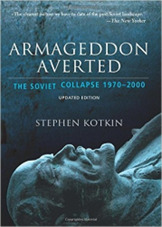
Stephen Kotkin, Armageddon Averted
Remind me, why did the Soviet Union collapse? Stephen Kotkin’s account seems as good as any: economically, it couldn’t keep up, and then its leaders (ie, Gorbachev) lost belief. It really was quite odd, and you can see why China’s leaders might be desperate to stop something similar happening to their country. Kotkin’s book also suggests why they might fail - it’s not about having strong leadership, but about having institutions that can adapt and modify themselves. Control wasn’t the problem of the USSR - it had plenty of that. What it couldn’t do was put in place mechanisms that over time would allow for change that would lead to things being done more efficiently which in turn would have made them more effective. I think China will struggle with the same issues - as with the Soviet Union, there will be plenty of things which it can do, but unable to reform itself, it will become less and less able get rid of the practices which hold it back, and so will fade.
0 notes
Text
Read in 2024
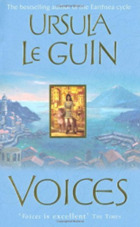
Ursula Le Guin, Voices
Voices is the second of Le Guin’s Annals of the Western Shore trilogy, all written around the mid-2000s, when she was in her 70s. The first one, Gifts, I liked a lot. It was nicely ambivalent about the strange powers held by various people in its remote, upland, peasant setting. Voices has a bigger story – an uprising against a hated invader – but it’s also rather more black and white. The good characters are good, the bad ones bad. Its main figure, 17-year-old Memer, doesn’t develop so much. Nonetheless, Le Guin’s still such a strong story teller I was carried along. On to the trilogy’s last volume, Powers.
0 notes
Text
Read in 2024

Ronen Bergman, Rise and Kill First
An unfortunately well-timed read – decided on last summer for my book-reading group, then read through late 2023 and early 2024. Bergman’s lengthy history of the many assassinations conducted by Israel’s various secret service bodies since 1945 (and the actions of others which led to many of them) certainly provides context on events in Israel and Gaza since 7 October last year. That they have continued since his book was published in 2017 is not surprising. And is what they led to. I found it impossible not to agree with his conclusion: tactically astonishing, strategically a disaster. Perhaps the one consolation is that Israel can have journalists as amazing (and brave) as Bergman to write up such actions and not lock them up. Maybe there is hope in that, even though it’s hard to see any kind of decent outcome arising in the short or medium term. Without doubt, this will be one of my top reads of this year.
0 notes
Text
Read in 2024



Carlo Rovelli – Seven Brief Lessons on Physics, Reality is Not What it Seems, The Order of Time
After earlier this year reading Rovelli’s Helgoland, mostly about Werner Heisenberg, and rather liking the idea he suggested about thinking about relations and not about things, I decided to investigate a couple more of his books: actually three – his rather too short Seven Brief Lessons on Physics, and his longer (but not long) and much more satisfying Reality is Not What it Seems and The Order of Time.
Seven Brief Lessons on Physics really is too slight a book – less than 70 pages means it barely touches on its various themes, let alone explains or explores them. Reality is Not What it Seems and The Order of Time are both are far more ambitious and interesting – laying out how Rovelli sees physics as explaining the nature of our world and the universe. Of the two, The Order of Time worked better for me in terms of understanding, with Rovelli going a long way towards explaining why our (human) perception of time might not be what time is really about.
But Reality is Not What it Seems, though harder to grasp, rather nicely moved along his idea that we shouldn’t think of things/forces as being something but as being an expression of relations, and so perhaps is the more fundamental of the two.
What emerges from reading Rovelli isn’t clarity, but rather some kind of intuition about how things best expressed through mathematics sort of are for the rest of us. Whether it’s possible to get much closer I’m not sure, but I feel a little wiser as a result of these two books, and Helgoland, and also – though to a lesser extent – Seven Brief Lessons. Having read a fair number of popular physics books over the years, he’s definitely one of the leaders in this field.
0 notes
Text
Cultural life
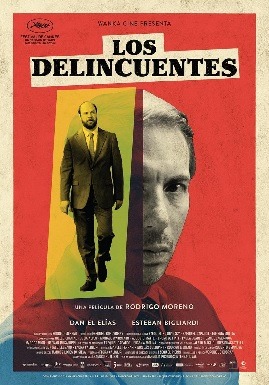
I wasn't expecting a 189-minute movie when I sat down in my seat, but I had no complaints three and a bit hours later. This was a fun, nicely paced piece of work, filled with ebbs and flows.
Loosely based around the theft of $650,000 from the bank where its two protagonists work, it's not really a heist movie, but rather one about seizing the opportunities that come your way. (For me, its central thread was about figuring out how you want to live your life, and that trying to do so might lead to some interesting surprises; that goes for all of us, including bank clerks.)
Not quite strong enough to be a classic (I don't think watching it twice would be that rewarding), but definitely justifying its length for one time round.

0 notes
Text
Read in 2024
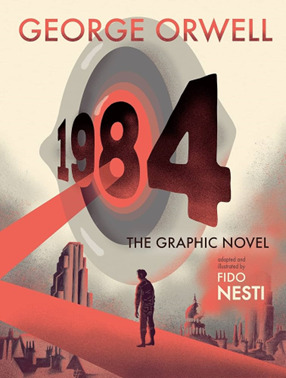
George Orwell & Fido Nesti, 1984: The Graphic Novel
What a fantastic book. Fido Nesti’s interpretation of 1984 both stays true to the original and makes sure it’s as relevant as ever. He captures the rundown Britain of the late 1940s, and he shows just how awful authoritarian states are, with their lies and violence – then, now. The Soviet Union may have long since gone, but the parallels with China (and now Hong Kong) are there to be seen.
It must be more than 40 years since I read 1984 and I don’t think I need to reread it. Instead, I can see it through Nesti’s eyes – all the same ideas, but with a slightly different take. Perhaps he makes the violence more powerful than the original? But that’s important: those authoritarian states don’t just play with your mind; they also do real, physical damage to people. And they also atomise their societies, preventing people from establishing ties with each other.
It’s a shame that 1984 is still relevant, but Orwell is fortunate in having Nesti to help with keeping the messages of his book out there.
0 notes
Text
Read in 2024
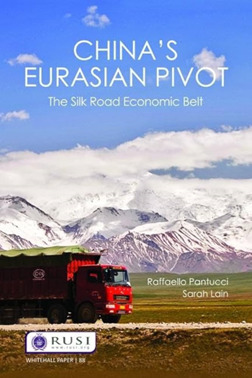
Raffaello Pantucci and Sarah Lain, China's Eurasian Pivot
China’s Eurasian Pivot is a more than useful introduction to the rollout of China’s belt and road strategy during the first few years after Xi Jinping announced his grand scheme in 2013. Though published in 2017, and so not completely up-to-date, Pantucci and Lain do a fine job of outlining the various agendas China and its various neighbours have for building infrastructure, economic and security ties. Their evenhanded account highlights China’s modus operandi, exploring its strengths and weaknesses, and in the process making its rationale understandable and so offering a valuable tool in the ways of thinking that guide Chinese policy-making and its implementation. All in all, an excellent and impressively concise (just 98 pages) guide to what China is up to around its western and northern border. My only complaint: the book’s excessive use of abbreviations with no glossary or index to remind you of what they stand for when you can’t remember.
1 note
·
View note
Text
Cultural life

Dune 2’s filmic experience was terrific. I loved sitting in the cinema for 166 minutes as the plot unfolded and one epic scene gave way to yet another epic scene.
But there was a lot I didn’t care for. The acting/characterization was awful; why were all the rulers white men; what of the casual brutality of those white men; the foreigners with funny accents; the depiction of the foreign-looking indigenous masses (very much others) as dumb and easily manipulated; the reliance on fascist tropes to show power; etc and so on.
All a bit of a shame, as harder work on the part of the director, maybe directing the bits which had to be directed, ie those with actors, could have made this a worthwhile experience rather than a film which impressed while it was in motion but the more I think about it now the worse it gets.

0 notes
Text
Cultural life

On the day Hong Kong's national security law comes into force aimed at discouraging people from breaking its rules, I go to see Hong Kong Ballet's "The Rule Breakers". Different kinds of rules, obviously.
I enjoyed the first Item, George Balanchine's "Serenade", and the second, William Forsythe's "In the Middle, Somewhat Elevated". Both are classics now, but were clearly doing something different when they first were staged.
But I wasn't taken with the third item, Andonis Foniadakis's Strangelove, a premiere. I don't think any rules were broken in his choreography to half a dozen or so Depeche Mode tunes.
Then again, other kinds of rule breaking are now rather more dangerous in Hong Kong.
0 notes
Text
Read in 2024
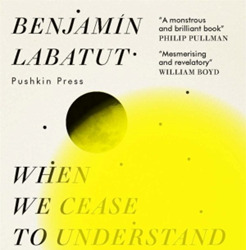
Benjamin Labatut, When We Cease to Understand the World
The first chapter of this book is remarkable – an astonishing sweep across mainly European history from the 18th to the early 20th centuries and various of the hugely toxic things invented during those years and the dreadful affect they had on many people. What comes after is rather a let down – a by-comparison-pedestrian account of the lives and ideas of various physicists and mathematicians through the 20th century, much of which reads like a lively popular science book, and an odd first-person postscript about living in a dry and dusty mountain village in Chile that seems misplaced to the point where I wondered whether it was an extra story added to pad out the book.
Philip Pullman’s cover blurb “monstrous and brilliant” is right about the first chapter, but not the rest of the book.
One reason I think it doesn’t work is that it’s too short (182 pages). Things happen too quickly, so stuff, instead of piling up, disappears all too quickly into the rear mirror. If you want a sustained account of lives like this told fictionally, Bruce Duffy’s The World as I Found It, about Wittgenstein and the various circles he moved in is hard to beat (it takes Wittgenstein’s life seriously – giving it nearly 600 pages). In the end, despite that mind-blowing opening chapter, it’s too slight a book, especially given the weightiness of the many subjects it touches on. Its title points to the scope it all too quickly doesn’t live up to.
All the same, I’m now eager to get my hands on his follow up, The MANIAC, about John von Neumann, to see what that delivers.
0 notes
Text
Cultural life
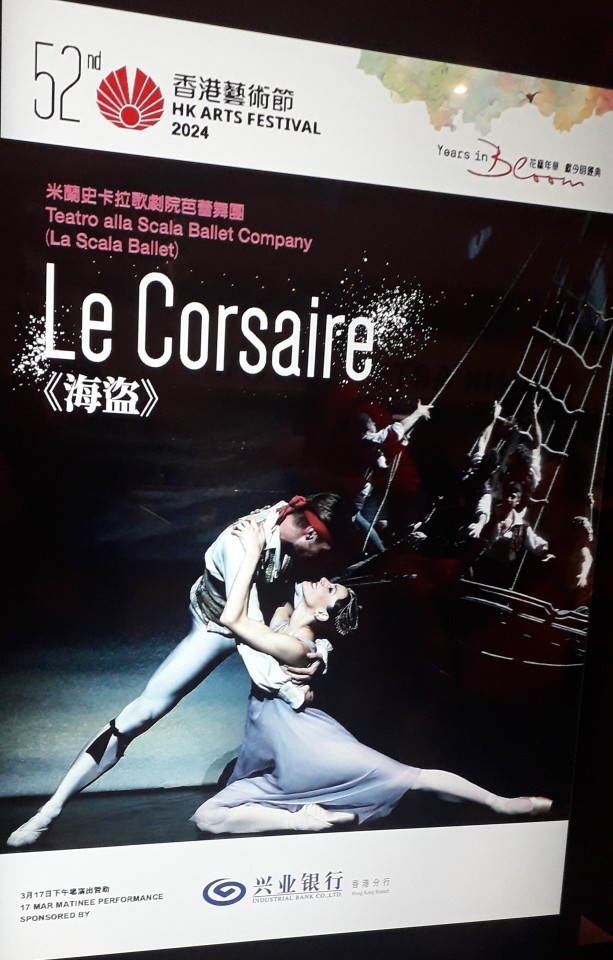
What a wonderful ballet - up there with Don Quixote. Can't think of a better way of spending a damp March Sunday afternoon than watching an Italian Le Corsaire.
1 note
·
View note
Text
Read in 2024

Nick Bostrom, Superintelligence
Published a decade ago in 2014, this is the book about the AI threat – talking through how we should be preparing for the time when artificial intelligence far smarter than us takes however and so what could we do to stop that happening.
He saw what Sam Altman and all the others are going on about with the need to regulate AI.
Except I don’t think it’s going to work like Bostrom says. Long before AI starts trying to replace/eliminate humanity, won’t human beings be thinking of ways they can use AI to empower themselves. The threat of AI, it seems to me, is not what it will do to us, but what we – or some of us – will do with it to other people.
I liked reading this book, but didn’t agree with it apart from here and there. Bostrom reminds me of Robert Nozick: super-smart – far smarter than me, and far quicker at thinking too. But that means he makes dazzling arguments, not great ones, and (at least in my opinion) is why people still take the far more plodding Rawls seriously, but don’t really spend much time worrying about all those clever thrusts that fill Anarchy, State and Utopia.
For Bostrom, I kept thinking “well, that’s not really an issue that’s going to trouble us, is it?”, perhaps referring to his example of this superintelligence he writes of filling the universe with things that support it (that’s the universe, not just our bit: we plausibly, he notes, could be given a galaxy of our own while it colonises everything else.
And occasionally he brought me to a complete halt. On page 210, for example, when he writes “No ethical theory commands majority support among philosophers, so most philosophers must be wrong.” Would he qualify this statement, I wondered. Nope. Was he being ironic. Nope. So …
The future he sees, at least as his argument plays out, is teleological-determinist: once this superintelligence gets going, nothing can stop it. Well, maybe, is my response.
I guess I’m glad he discussed all that he does – the book ranges very widely across things like the difficulties of coming up with sets of rules that might be used to prevent a superintelligence from taking over. But I did get a bit bored reading through his list of all these issues.
Far more worrying, it seems to me, would be some kid figuring out a way of harnessing his AI engine to some fancy 3D manufacturing hardware and producing something toxic. Or some dumb scientists playing around with AI-programmed viruses. Or something else that happens when we wire up some over-powered LLM to some robot or other and ask it to do something that will help get us more control of some kind or other.
0 notes
Text
Read in 2024
Graham Hill & Robert Wensley, Chemistry, Erica Larkcom & Roger Delpech, Biology, Nick England, Physics
Took me a while to read these three textbooks – spread over around six months, in chunks of a few pages here, a few there, plus working my way through most of the questions, many of which are much easier done with a pen and paper than just with the head. I reckon, with a bit of practice on past papers, I could now make it through IGCSE physics, biology and chemistry.
The physics book is the most straightforward of the three – once you get it you get, and the vocabulary isn’t too hard. The biology is the most straightforward – a lot of the material is common knowledge; there’s nothing that’s hard to understand. But it’s the worst in terms of vocabulary – lots of names of things to do with plants, bodies, genetics, etc. The chemistry is the trickiest – lots of bits and pieces to be learned separately, and it takes a while before you see how everything sort of hangs together (electrons, basically).
Overall, I’m impressed with these books and what they teach. The explanations are clear, the illustrations excellent and the study and exam-style questions focused on the important stuff. But that’s for me – an adult with an interest both in these things and how they’re presented to 15-16 years. What about those kids? The one I have taking this exam is less sure; it would definitely be a struggle to read and learn from these alone. Fortunately, he’s got the Internet, especially the many YouTube videos that talk through all this material. Those are likely to prove more beneficial for his learning than these books. Interesting, heh?



0 notes
Text
Read in 2024
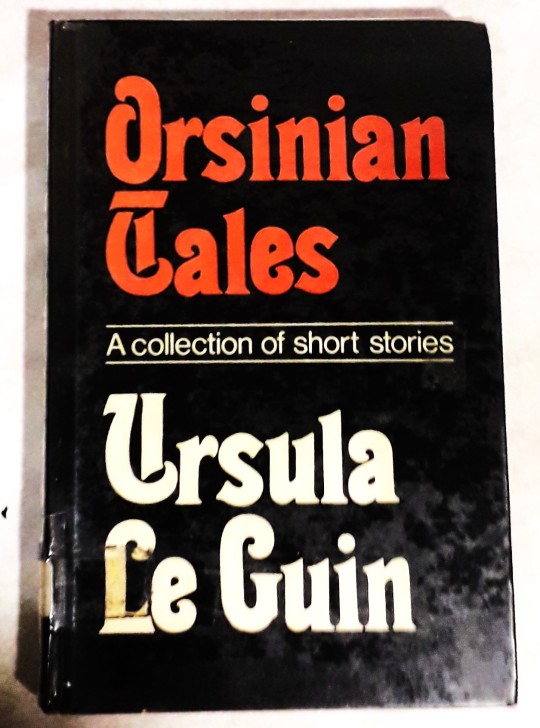
Ursula Le Guin, Orsinian Tales
Curious is a word I like – interesting, perhaps flawed, perhaps not – I’m not sure. Ursula Le Guin’s Orsinian Tales are curious and perhaps not flawed (she really was too good writer.)
Written largely it seems in the 1970s, they are set in Europe – central/eastern Europe – at many points in time, from 1150 to the 1960s. They’re not science fiction, nor are they fantasy. A couple reminded me of Thomas Mann – tales of bourgeois families from the late 19th or early 20th century. Some are entirely historic – one set amongst wars of the mid-17th century, another in 1150 (though it feels much older). Some are set in the 20th century, before or after totalitarian rule, in or near quarrying towns, or in one instance near Paris.
The one reference point I can think of in Le Guin’s other work are the bleak worlds of The Dispossessed – the anarchist Anarres and the unpleasant Urras. As The Dispossessed was published in 1974, Orsinian Tales is of the same era – reflecting an interest in living under the dreary conditions of east European communism? Probably not – there’s too much variety in the eleven tales’ settings. In fact, the more I think about them, the more they defy categorisation. Let’s just say another creation from Le Guin’s remarkable imagination.
0 notes
Text
Read in 2024

Michael Oakeshott, On Human Conduct
Edmund Neill, Michael Oakeshott
I read On Human Conduct a few years ago – exactly when, I’m not sure, as it doesn’t seem to turn up on any of my books-read list – but it made an impression, partly for being difficult, and partly for (as I recalled it) being an argument against using social concepts to explain things.
Rereading it, along with two books about Oakeshott – the one above by Edmund Neill and one late last year by Paul Franco – I would stick with both my conclusions, but adjust them a little, and add another one.
The argument against using social concepts wasn’t quite so clearcut on this second reading, but I think it’s still true. Essentially, Oakeshott says people don’t do things because of abstract things like “social forces”, but because of their interactions with other people. His target here seems to be the whole of sociology and much of the rest of the social sciences. The suggestion, for example, that people are shaped by culture, I would imagine he would have seen as derisory: your culture plays out in your encounters with others, either directly or (presumably) mediated through things such as books which you read, etc. He doesn’t say as much, but I think there’s the idea here that you are the author of your actions (which is not to say that your circumstances aren’t important – they clearly are – but you’re the one making sense of them with whatever mental tools you have available to you).
And he is a difficult writer. He writes negatively a lot (“things are not A, and nor are they B, nor C either …”), and certainly on a first reading he doesn’t give the reader much in the way of signposts to follow. Also he tends not to make arguments – having dealt with what things aren’t, he then asserts what they are – and he uses/invents a lot of latinate phrases, most of which are quite clear but with meanings modified to meet his needs. But reading him a second time with a goal (mainly to see if my view of his views on social forces was actually right nor not) was a lot easier than just reading him the first time round to see what he was about.
As to the third, what I found by far most interesting on my second reading was the book’s third and last part, “On the Character of a Modern European State”, and its suggestion that European states existed in tension between being civic associations – bodies based on laws that applied to all but which have no goals in themselves – and enterprise associations – bodies established to realise a goal. The traditional liberal state is a civic association, existing to let its citizens do whatever they want provided they don’t break the laws which govern them all; a socialist state would be an enterprise association in which individual freedoms come far behind the overall goal of advancing productive forces and welfare, with education aimed at socializing people to those goals. There is of course a lot more subtlety in Oakeshott’s argument than this, though perhaps less than you might imagine – though he obviously leans towards the civic association side, he also would have accepted that states also have goals they should strive to meet.
I think this is very much an argument worth making. For Oakeshott, it stems from Europe’s ways of ruling dating back to the middle ages, and how as states emerged they posed the problem of exactly what these entities which changed the way people were governed actually were.
Being a conservative, he saw tradition – habits passed on from person to person – as important and wasn’t interested in notions such as market forces or rights. Yet he was also an advocate of modernity – that in the 20th century versions of states, especially the more liberal ones, people could lead meaningful lives of their own making.
Neill and Franco’s books on Oakeshott I found useful – not so much for the politics side of his thinking, which I think you can unravel yourself without too much trouble, but for the other parts of his life and thinking, which I don’t think I would want to spend much time on.
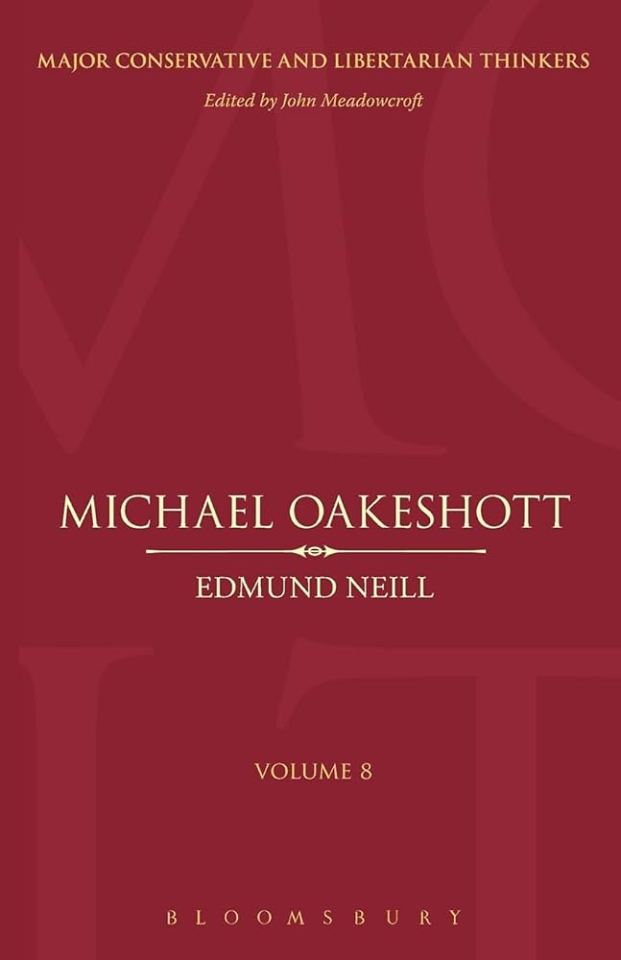
0 notes
Text
One year in Canto food

Another late lunch - trying the 招牌牛腩飯 at 贊記 in 牛頭角.
0 notes